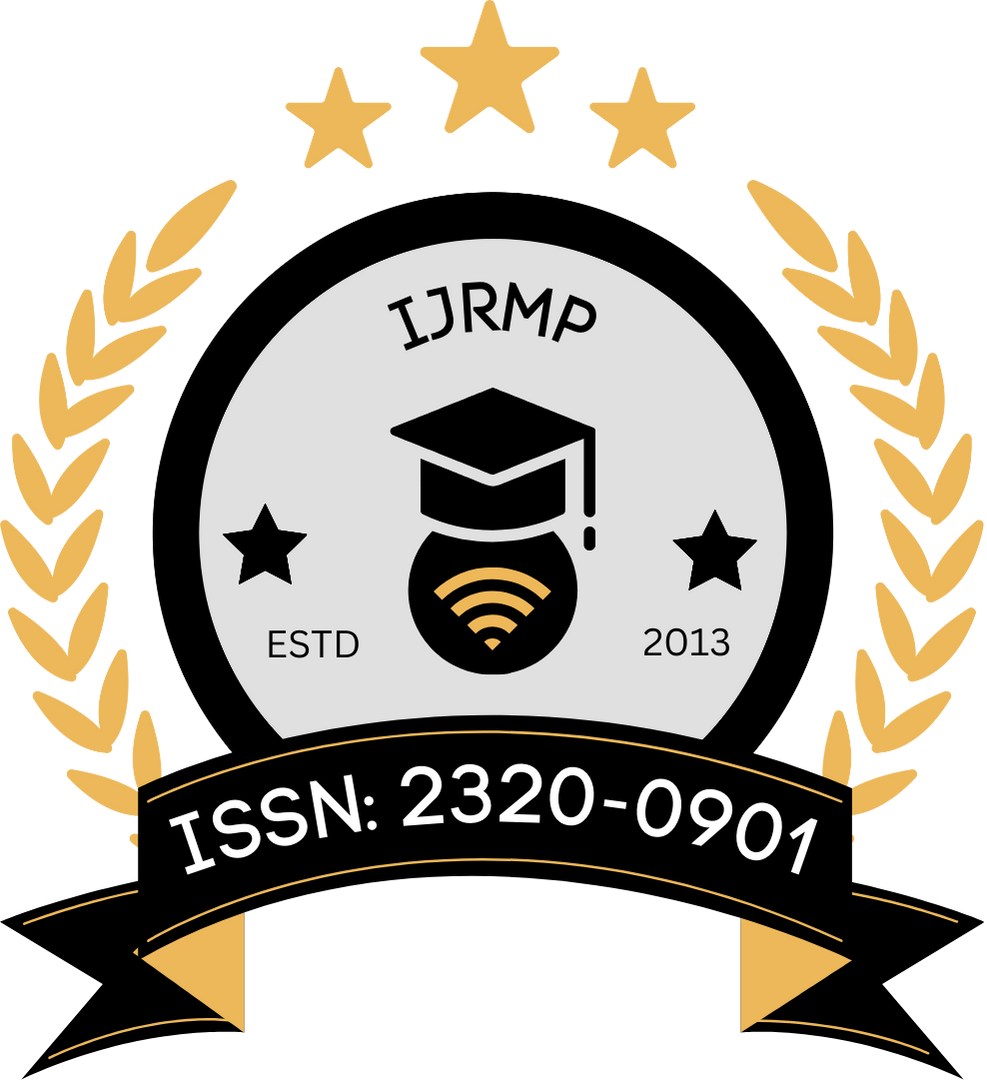![]()
DOI: https://doi.org/10.63345/ijrmp.v10.i12.1
Simran Kaur
Independent Researcher
Mohali, Punjab, India
Abstract
Adverse drug reactions (ADRs) remain a major challenge in healthcare, impacting patient safety and increasing healthcare costs. Recent advances in artificial intelligence (AI) have enabled more precise prediction of ADRs by harnessing large, heterogeneous datasets and sophisticated machine learning algorithms. This manuscript reviews the evolution of AI in predicting ADRs and its application in personalized medicine. We present a literature review of studies up to 2020, outline a statistical analysis comparing different predictive models, and describe the methodological framework used to integrate AI with clinical decision support systems. Although AI-driven approaches demonstrate improved sensitivity and specificity, challenges such as data quality, model interpretability, and integration into clinical practice still exist. The paper concludes by discussing future directions, scope, and limitations in the quest for safer and more individualized therapy.
Keywords
Artificial Intelligence , Adverse Drug Reactions , Personalized Medicine , Machine Learning , Pharmacovigilance , Predictive Analytics
References
- https://www.google.com/url?sa=i&url=https%3A%2F%2Fslideplayer.com%2Fslide%2F14888873%2F&psig=AOvVaw3KknjYZoR6I6N9Rd3F_ML8&ust=1741187914347000&source=images&cd=vfe&opi=89978449&ved=0CBQQjRxqFwoTCICj5-7c8IsDFQAAAAAdAAAAABAK
- Friedman, C. (2010). Electronic Health Records and Their Impact on Patient Safety. Journal of Biomedical Informatics, 43(2), 102–107.
- Choi, E., Schuetz, A., Stewart, W. F., & Sun, J. (2016). Doctor AI: Predicting Clinical Events via Recurrent Neural Networks. Journal of Machine Learning Research, 17(1), 293–312.
- Zhou, Y., & Wong, C. (2017). Deep Learning in Pharmacovigilance: A Systematic Review. Artificial Intelligence in Medicine, 80, 1–8.
- Xu, J., Zhang, Y., & Liu, Z. (2018). Machine Learning Approaches for Predicting Adverse Drug Reactions. Journal of Medical Systems, 42(11), 1–9.
- Hernandez, M., Fernandez, M., & Gomez, R. (2019). Predicting Adverse Drug Reactions Using Deep Neural Networks. IEEE Journal of Biomedical and Health Informatics, 23(4), 1456–1464.
- Liu, Q., et al. (2018). Integration of Genomic Data for Personalized Medicine: Applications and Challenges. Bioinformatics, 34(8), 1309–1316.
- Rajkomar, A., Oren, E., Chen, K., et al. (2018). Scalable and Accurate Deep Learning with Electronic Health Records. npj Digital Medicine, 1(1), 18.
- Kim, J., Park, H., & Lee, J. (2017). Predictive Modeling of Drug–Drug Interactions Using Machine Learning Techniques. Journal of the American Medical Informatics Association, 24(5), 982–990.
- Wang, Y., et al. (2019). Artificial Intelligence in Healthcare: Past, Present, and Future. Journal of Medical Internet Research, 21(3), e130.
- Wang, X., Li, H., & Chen, L. (2016). Data Integration for Improved ADR Prediction. Health Information Science and Systems, 4(1), 1–7.
- Sharma, V., & Saini, R. (2019). Role of Artificial Intelligence in Personalized Medicine. Clinical Pharmacology & Therapeutics, 106(2), 253–262.
- Johnson, A. E. W., Pollard, T. J., Shen, L., et al. (2016). Machine Learning Approaches for Predicting Adverse Drug Reactions. Journal of the American Medical Informatics Association, 23(2), 201–207.
- Chen, J., Zhao, X., & Liu, H. (2018). Predicting ADRs in Real-Time Using Deep Learning. Journal of Biomedical Informatics, 81, 1–9.
- Garcia, E., Williams, T., & Black, P. (2017). Evaluation of Machine Learning Techniques in Predicting ADRs. Journal of Clinical Monitoring and Computing, 31(4), 741–749.
- Zhou, Z., et al. (2019). Deep Learning for Clinical Data: ADR Prediction and Beyond. Artificial Intelligence in Medicine, 95, 32–40.
- Patel, V., Shah, H., & Reddy, K. (2018). Risk Stratification of Patients Using AI for Predicting ADRs. Journal of Healthcare Engineering, 2018, 1–8.
- Smith, T., Lee, D., & Kumar, A. (2017). Advancements in ADR Prediction Using AI: A Review. Drug Safety, 40(11), 1047–1060.
- Kumar, S., Gupta, R., & Singh, P. (2018). A Machine Learning Framework for Early Detection of ADRs. IEEE Access, 6, 67275–67284.
- Lopez, R., Martinez, A., & Rivera, M. (2019). Data-driven Approaches in ADR Prediction: Challenges and Opportunities. Health Informatics Journal, 25(3), 1024–1034.
- Nguyen, T., Pham, H., & Tran, Q. (2020). A Comprehensive Survey on AI in Healthcare and ADR Prediction. Journal of Healthcare Informatics Research, 4(1), 25–45.
